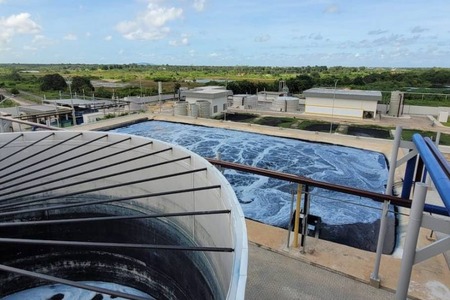

VSA
Vicunha Services, a subsidiary of the Vicunha Group, has launched the VSA project to address the issues of high water consumption and support UN SDG-6, which focuses on clean water and sanitation. The project aims to reduce the company’s dependence on external water sources by up to 90%, thus preserving water sources and rivers
Located in Ceará, Brazil, the VSA project comprises two advanced water treatment systems, Reuse Water Production Plant and Industrial Effluent Treatment Plant. The former uses dual filtration technology to purify domestic sewage from the municipality of Horizonte, while the latter treats industrial wastewater using biological and physicochemical processes.
The $12 million project was developed in collaboration with Cagece, the state water and sewage company of Ceará. This partnership was crucial for securing financing, resources, and technical expertise, ensuring the project’s efficiency and reducing implementation time.
In 2024, Vicunha continues to prioritize sustainable growth. Marcos De Marchi, CEO of Vicunha, emphasized the company’s commitment to partnerships and collaborations that enhance sustainability practices and reduce the textile industry’s environmental impact. Vicunha aims to lead the shift towards a more sustainable future in the textile industry.
Panda Biotech has partnered with TDMI Twin Dragon to unveil a groundbreaking hemp denim collection crafted from 100% American-grown industrial…
Serge Ferrari Group has unveiled Batyline (Stam) Skin Feel, a new addition to its acclaimed upholstery collection designed for both…
Soorty, a Pakistani denim manufacturer, has announced that its Soorty Organic Cotton Initiative is now officially recognised by the Organic…
Modern Meadow has partnered with Bellroy to introduce its Innovera biomaterial, formerly known as Bio-Vera, into a new range of…
Re&Up has entered into a strategic partnership with Italian yarn spinner Marchi & Fildi to co-develop a new generation of…
Unifi has unveiled Repreve with CiClo technology, combining recycled polyester and nylon with biodegradable technology to help tackle microfibre pollution.